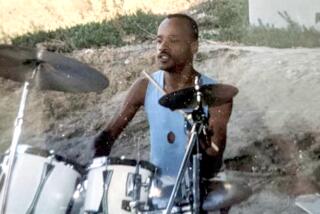Defense Must Disclose Evidence
SANTA ANA — A state appeals court has ruled that defense attorneys in death-penalty cases must reveal to prosecutors information they intend to present to jurors deciding between the gas chamber and life in prison without parole.
The ruling by the 4th District Court of Appeal upheld a section of Proposition 115, the criminal justice reform initiative. Before passage of that measure in 1990, only the prosecution was required to disclose evidence it planned to present to the jury in the penalty phase of capital cases.
In the guilt phase of all criminal trials, both sides are now required to disclose witness lists and other relevant material they intend to present during the trial.
While an appeals attorney for the district attorney’s office hailed the unanimous ruling as a further balancing of the scales of justice in capital cases, Associate Justice Thomas F. Crosby Jr. wrote of the court’s concern that Prop. 115 has started the criminal justice system in an “inquisitorial” direction.
“All along, the voters have wanted a swift yet reliable trial of people charged with capital murder,” said Deputy Dist. Atty. Gregg L. Prickett, one of the lawyers who argued the appeal. “The exchange of information from both sides will prevent the prosecution from facing trial by ambush.”
The ruling grows out of two recent murder cases, Gregory Allen Sturm and Daniel Michel Duffy, but is unlikely to have any major impact on either case. In both cases, the men were convicted of triple, drug-related, execution-style murders, but juries deadlocked on their penalty.
In Duffy’s case, the prosecution decided not to seek the death penalty in a second penalty phase, accepting a sentence of life without parole. Sturm is scheduled for a second penalty phase, but prosecutors already have heard the defense’s case for mercy.
Prickett said that the prosecution could get some benefit from the decision in the Sturm penalty retrial.
This time, the prosecutor said, the defense “may go out and get different experts. Nothing prevents them from doing that,” and if they do, that information will have to be disclosed to prosecutors.
More to Read
Sign up for Essential California
The most important California stories and recommendations in your inbox every morning.
You may occasionally receive promotional content from the Los Angeles Times.










